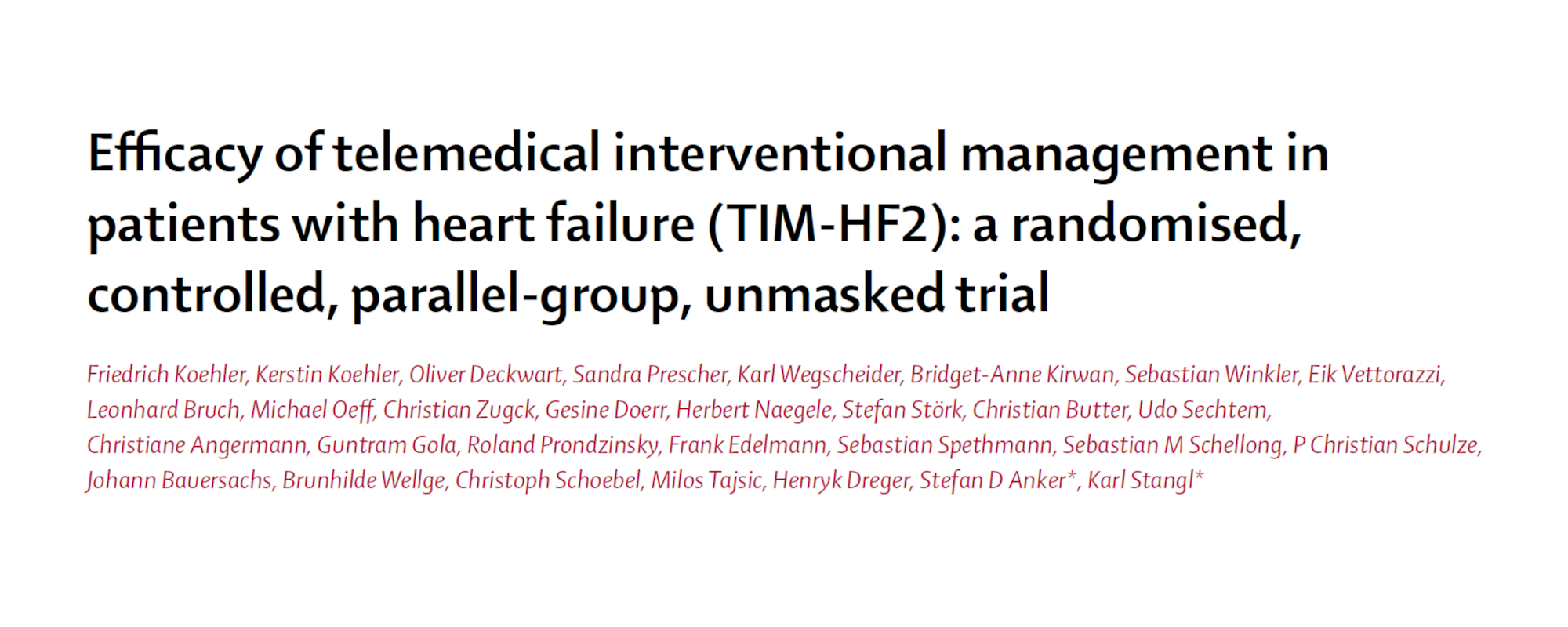To the best of our knowledge, this is the first RCT [Randomised Controlled Trial] to use a structured remote patient management intervention that was designed to be a true holistic approach for the management of patients with heart failure, involving cardiologists, general practitioners, nurses, other health-care providers, and the patient.
The study included 1,571 patients who were randomized and followed up for at least 365 days, with a maximum of 393 days. The remote management strategy was based on:
- Remote monitoring of data including weight, blood pressure, cardiac data (heart rate, ECG), saturation and a self-assessment questionnaire;
- Daily data collection using connected devices made available to patients;
- Enrollment of patients in a therapeutic education program.
Results demonstrate a statistically significant reduction in the number of days lost due to all-cause death or unplanned cardiovascular hospital admission in the remote management group. They establish a new standard for remote management of heart failure:
The TIM-HF2 trial suggests that a structured remote patient management intervention, when used in a well defined heart failure population, could reduce the percentage of days lost due to unplanned cardiovascular hospital admissions and all-cause mortality.
The CareLine platform architecture was designed drawing on this experience in order to enable remote management providing clinical and medico-economic benefits.
Find the full study here.
1. Clinical study NCT01878630 (ClinicalTrials.gov)
2. The complete study protocol is available here.
